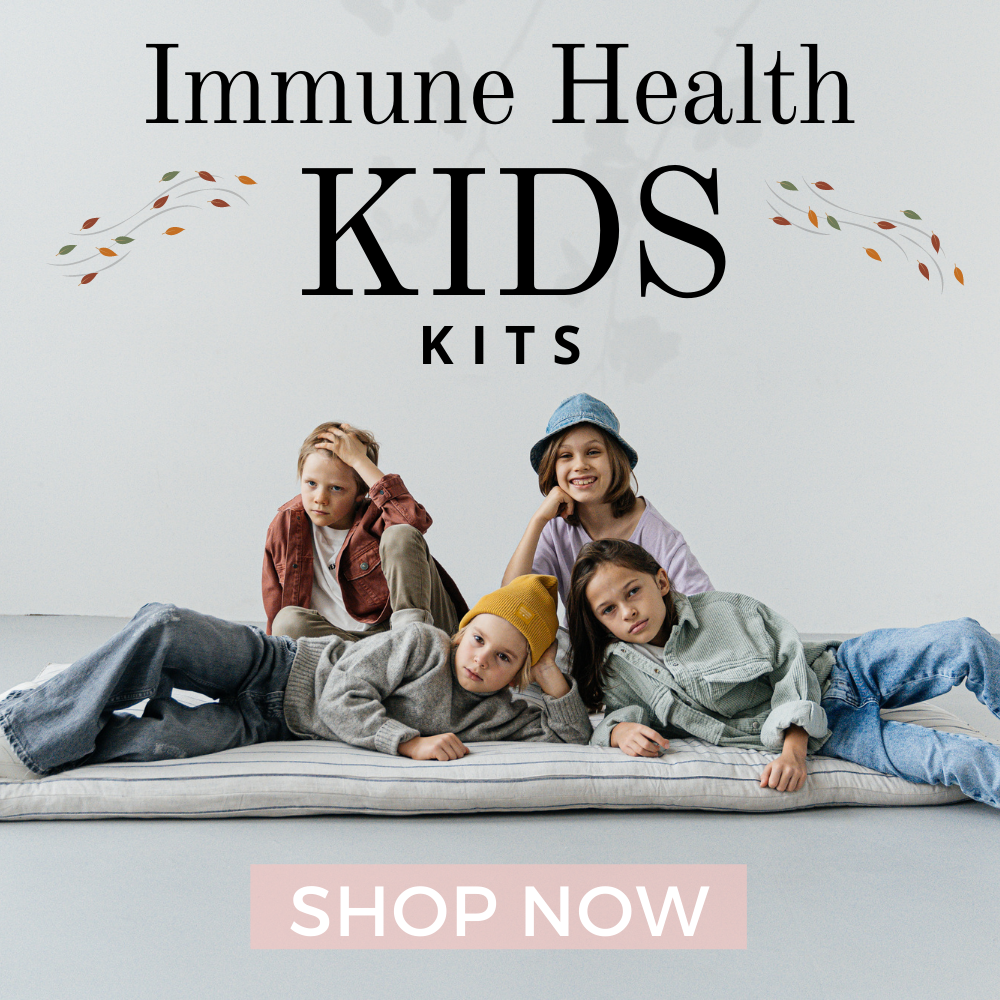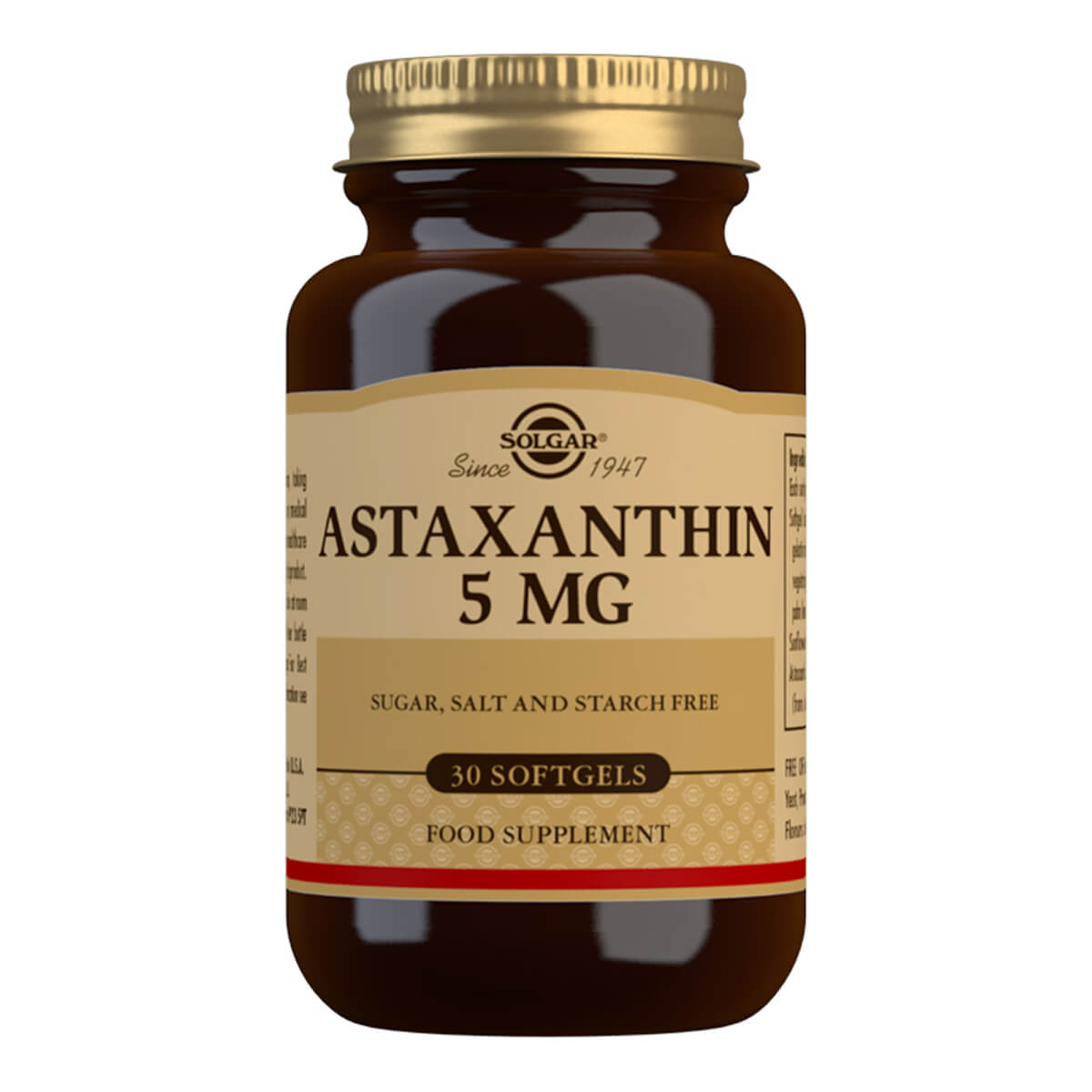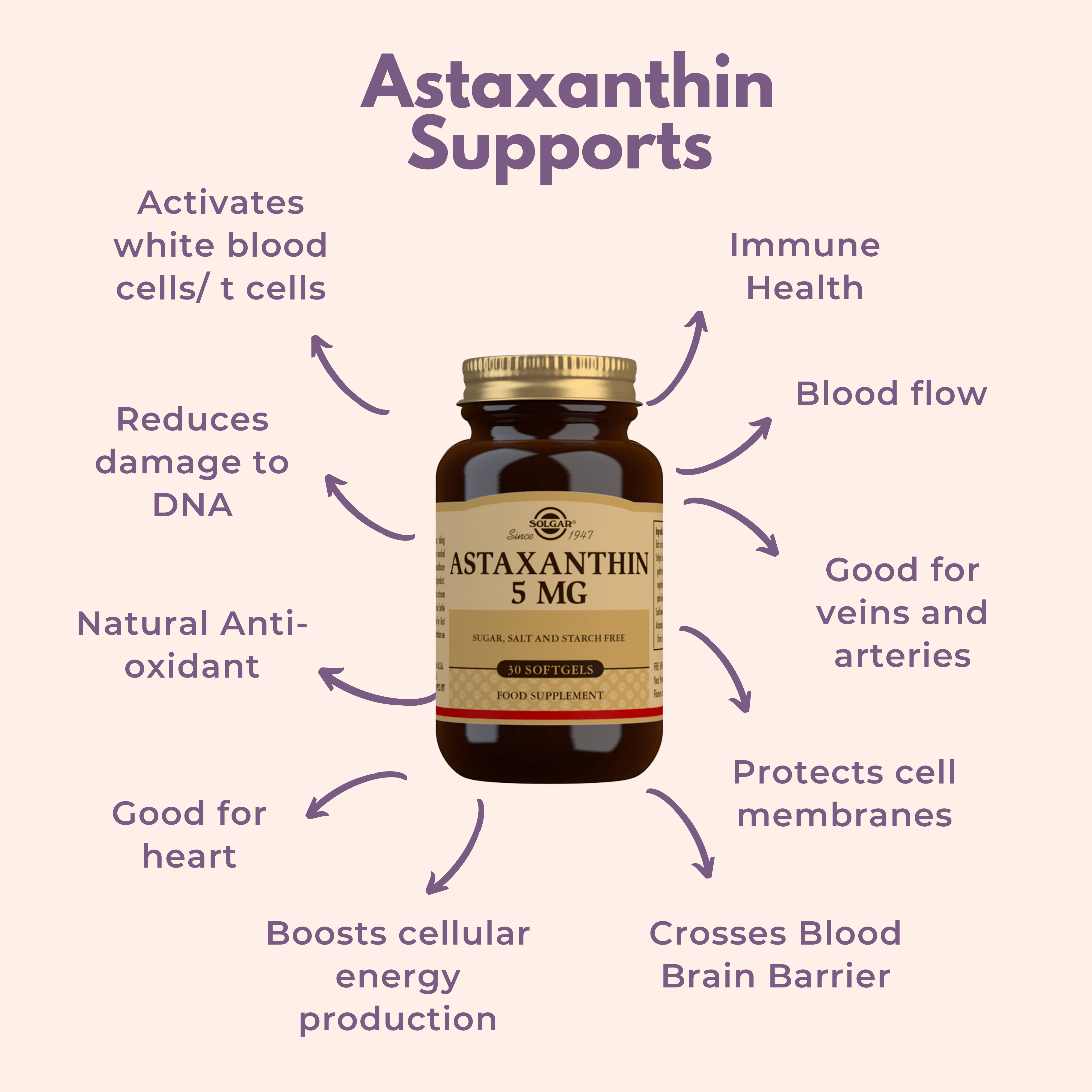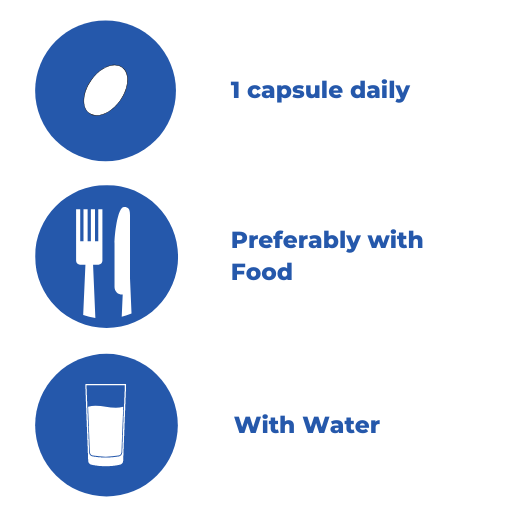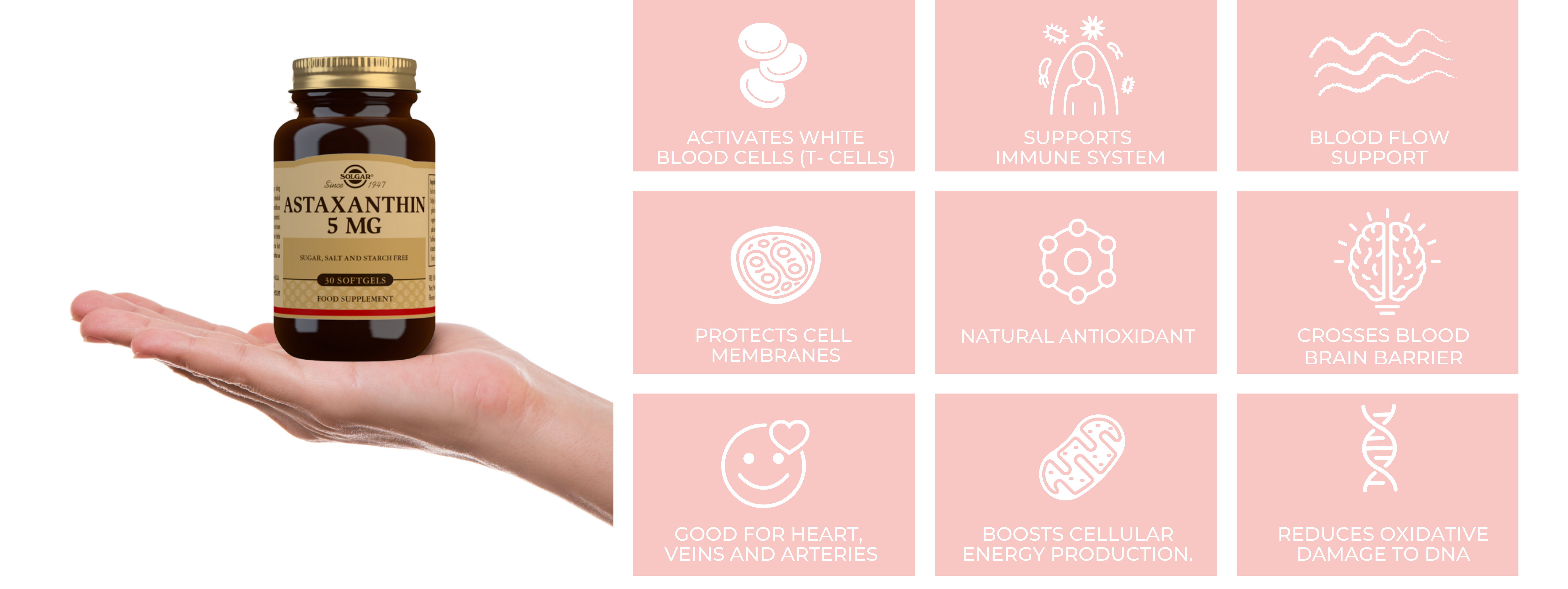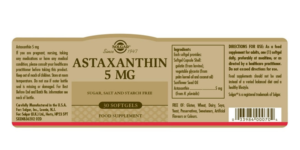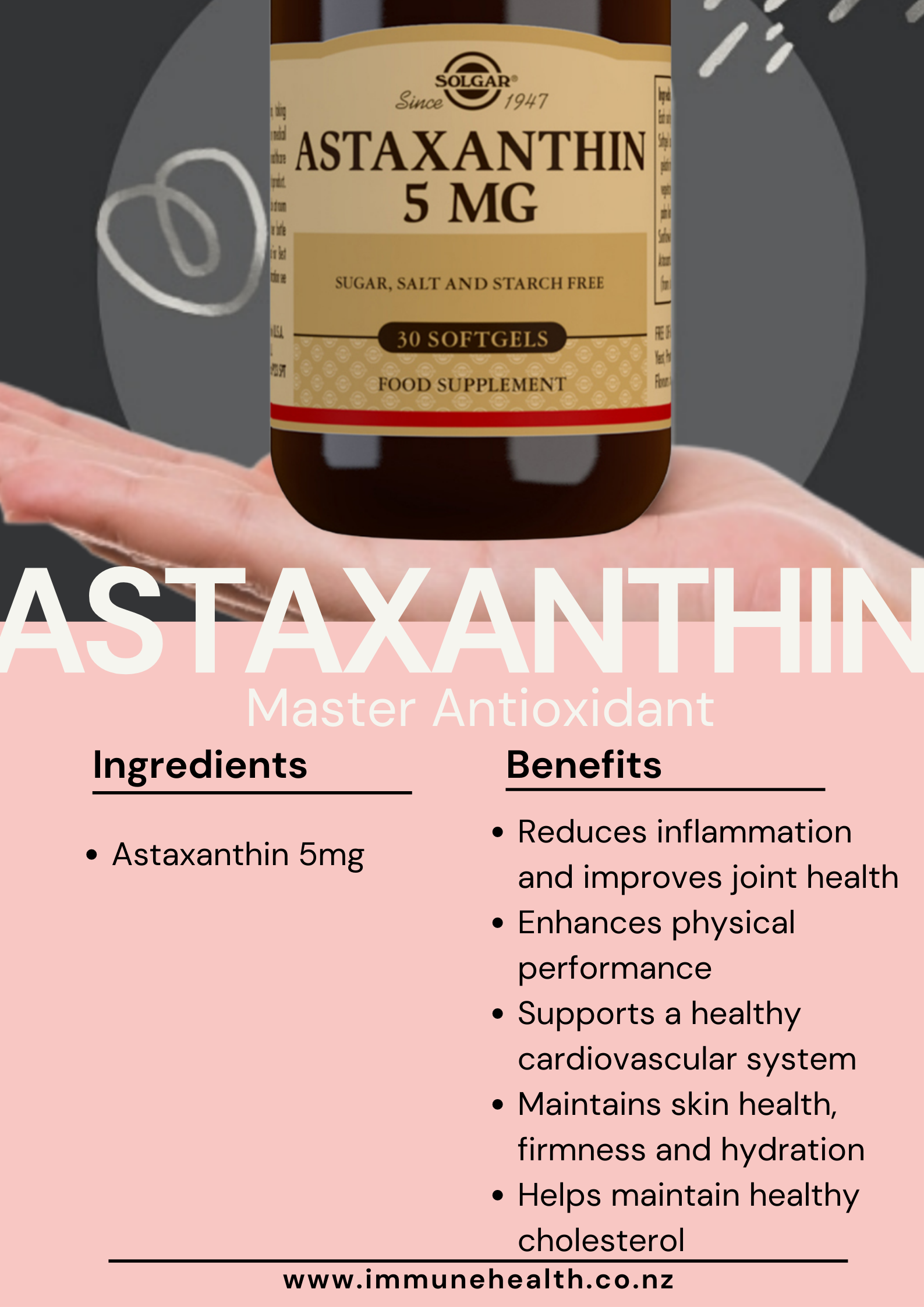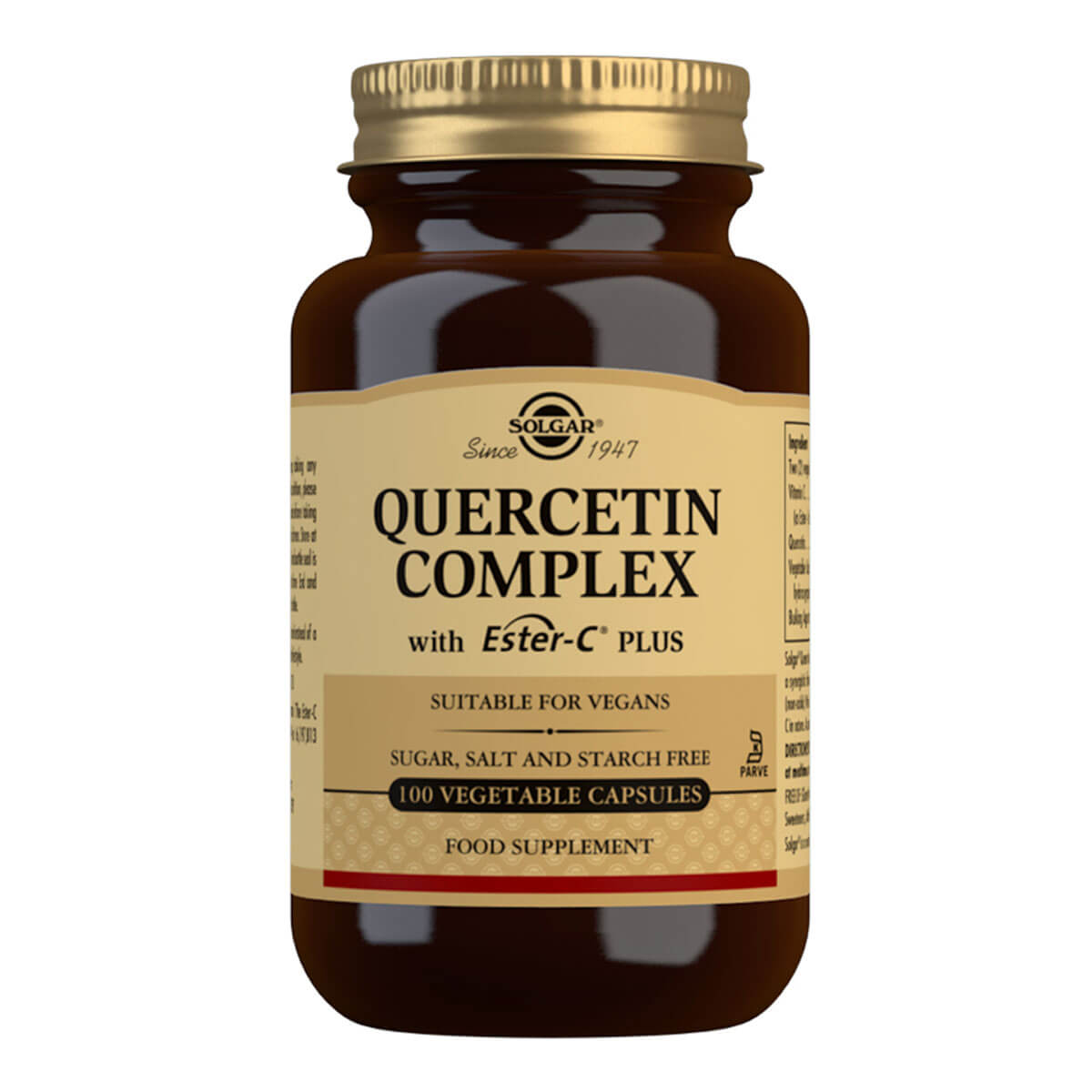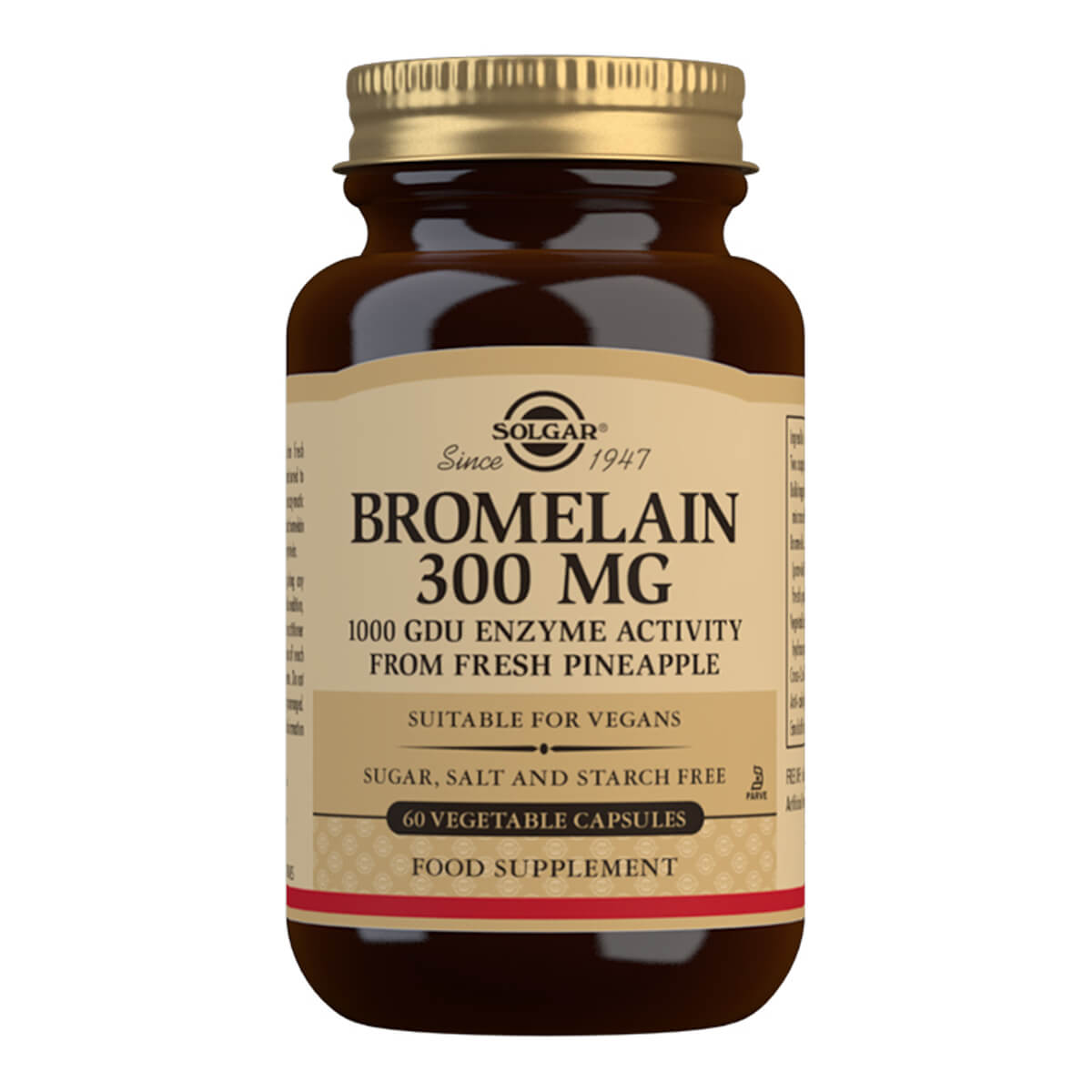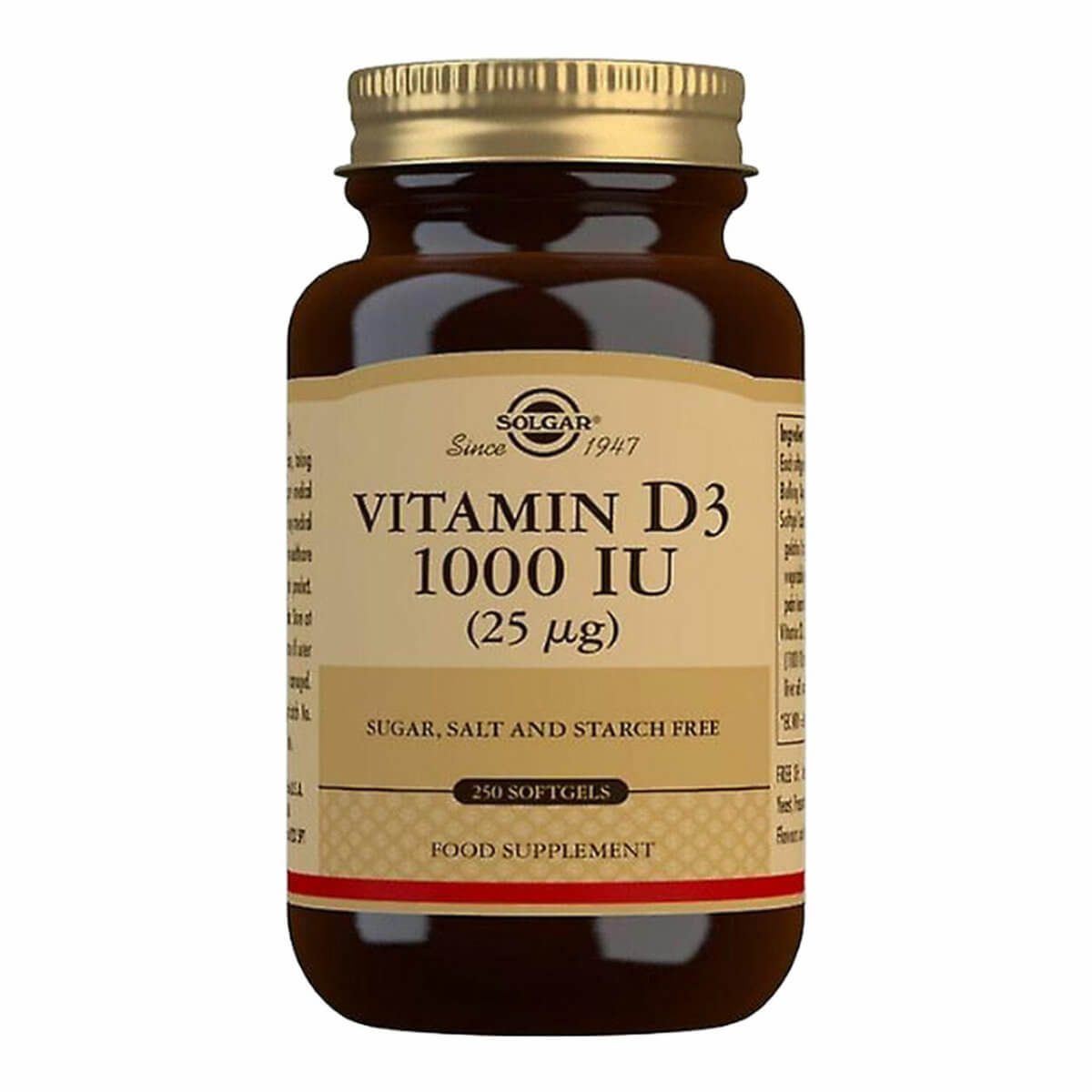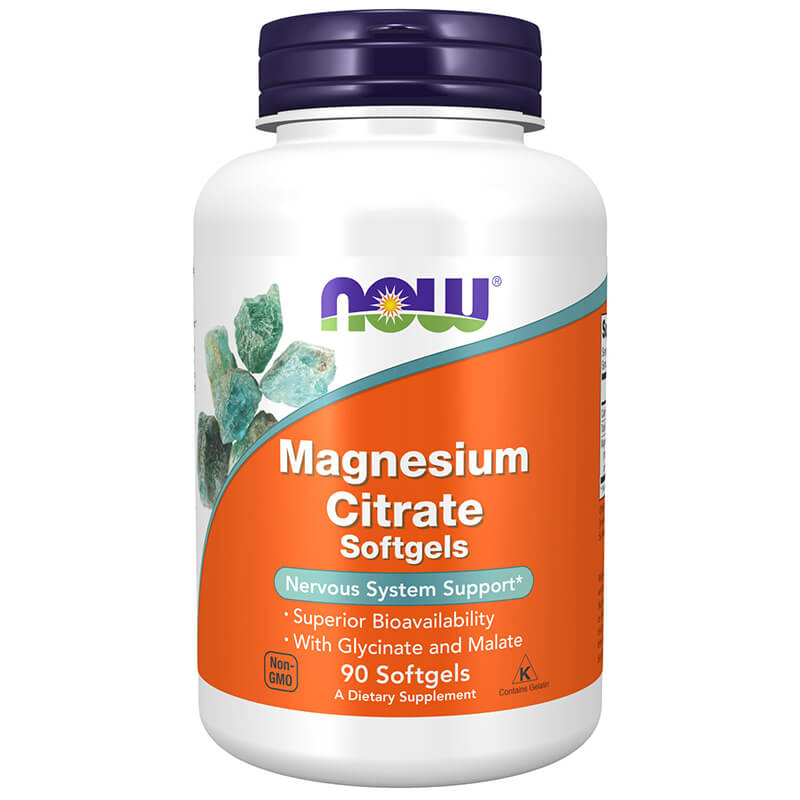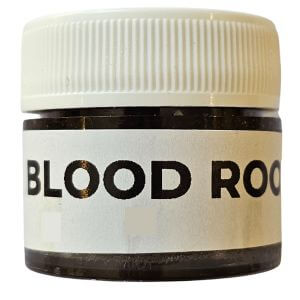Want to know More?
Details
Solgar® Astaxanthin 5 mg Softgels
- Supports joint health and muscle recovery
- Supports cells against free radical damage
- Supports healthy cardiovascular and immune systems
- Supports eye, skin and brain health for healthy ageing.
- Derived from freshwater algae
Solgar® Astaxanthin 5 mg contains Astaxanthin, a type of carotenoid, which is a natural pigment found in a variety of foods.
Carotenes are specifically found in vegetables and fruits, with beta-carotene found in those which are dark orange or green. Astaxanthin gives a vibrant red-orange colour to lobster, salmon and some algae.
As some diets often do not contain a range of fruits and vegetables, taking a supplement to reach adequate levels of carotenoids could be useful.
Solgar® Astaxanthin 5 mg provides Astaxanthin derived from Haematococcus Pluvialis, (freshwater algae).
Always read the label and use only as directed. If symptoms persist please see your healthcare professional. Solgar NZ Ltd, Auckland.
Ingredients
Check the label
How to Use
Highlights
Astaxanthin is nature’s most powerful antioxidant. It reduces free radical damage to body cells and therefore has a number of health benefits which are all back by science.
- Reduces inflammation and improves joint health
- Enhances physical performance and accelerates recovery from exercise
- Supports healthy cardiovascular system function
- Maintains skin health, firmness and hydration
- Helps maintain healthy cholesterol
- Supports cognitive function
- 6000 x stronger than vitamin C
- 55 x stronger than synthetic astaxanthin.
- Astaxanthin is another antioxidant associated with slowing brain ageing; it plays a role in protecting the skin from the inside out and against dementia, heart disease and Parkinson’s disease
What our Health Participants (Clients) Say
Let's Reset Your Immune System
Immune Health Kits For Kids
Our Children’s health is more important than ever, get you on the right track with your Family’s Health.
